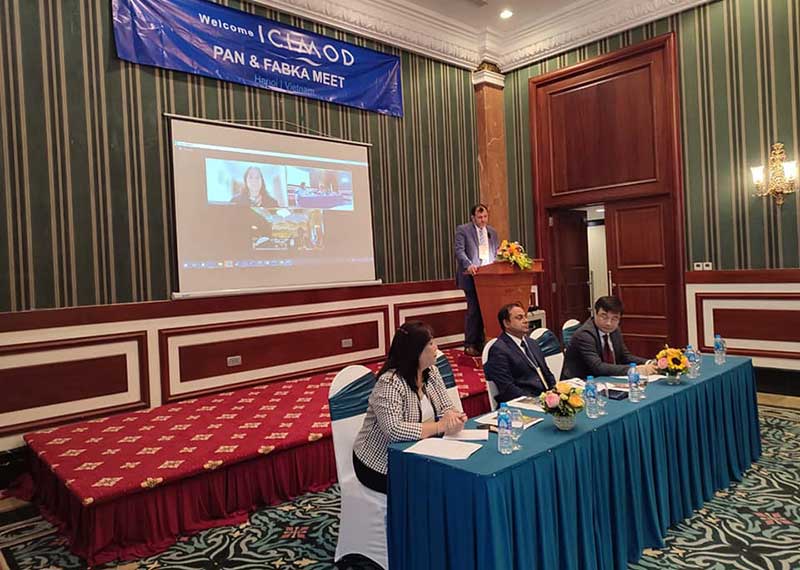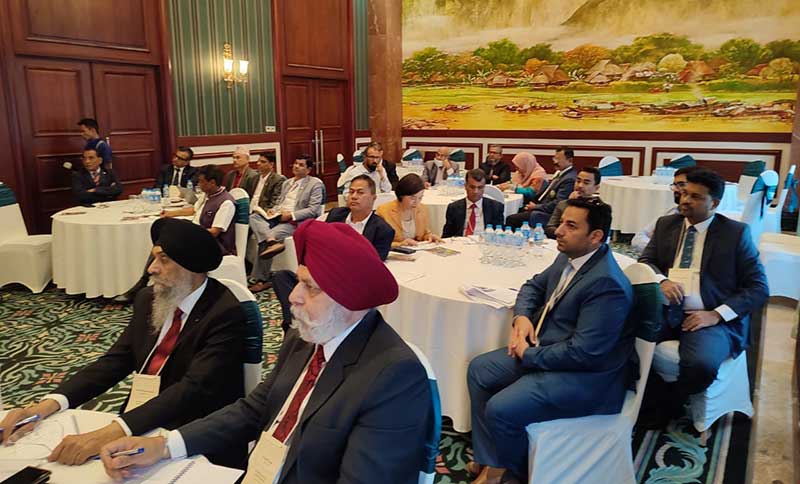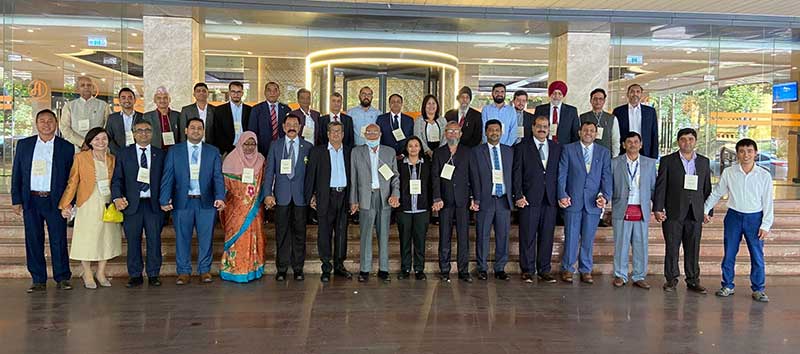October 18, 2022

Dr Md. Masumur Rahman, Director General of South Asia Cooperative Environment Programme (SACEP) has attended “Third Policy and Advocacy Network Asia Meeting” organized by The International Centre for Integrated Mountain Development (ICIMOD) in collaboration with the Climate and Clean Air Coalition (CCAC) to bring together governments, policymakers, stakeholders, and influencers to share and receive updates about the state of brick production and understand newer and sustainable solutions for cleaner brick production for brick producers from Bangladesh, India, Nepal, Pakistan, Sri Lanka, and Vietnam.
Dr Rahman appreciates and congratulate ICIMOD for their continued efforts in promoting regional cooperation for the conservation and sustainable mountain development and especially for their Regional Programme on Atmosphere which aims to improve understanding of air pollutant emissions, atmospheric processes and change, and impacts and promote mitigation and policy solutions while building awareness, capacity, and collaboration in the Hindu Kush Himalayas and upwind regions.
Dr Rahman mentioned that since SACEP's establishment in 1982, it has placed significant operational emphasis on promoting and supporting the protection and management of environment in the South Asia region. The importance of our regional work was recognized when in 1988, the Malé Declaration on Control and Prevention of Air Pollution and its likely trans-boundary effects for South Asia was adopted by the Ministers of the Environment at the 7th Governing Council of SACEP. In the meeting, the member-states reaffirmed their commitment to tackling the transboundary air pollution together. The Male Declaration is the only inter–government agreement on environment, which covers all South Asian countries.
He told that while existing laws and policies have helped reduce air pollution at the national level in South Asia, we all know that air pollution does not stop at national borders. Many countries in our region are both the sources and receptors of transboundary air pollution. That is why we need to do more to initiate well-coordinated programs of action now, so our countries will no longer face the same air pollution problems, which have affected others in the world.

